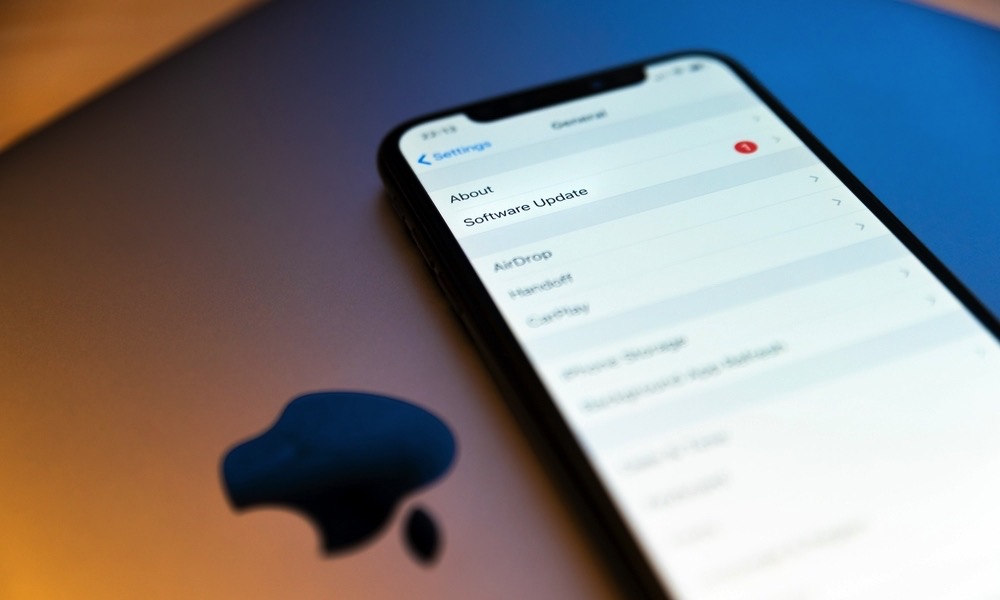Apple Just Released iOS 18.4.1 | Here’s Why You Should Update Right Away
 DVKi / Shutterstock
DVKi / Shutterstock
Toggle Dark Mode
Even as the iOS 18.5 beta cycle is underway, Apple has just pushed out iOS 18.4.1. It’s a relatively minor update that fixes at least one significant bug that’s been annoying many CarPlay users, but more importantly, it also patches some crucial security vulnerabilities.
Following the release of iOS 18.4, folks on Reddit and elsewhere reported problems with CarPlay, including issues with wireless connectivity, Siri audio, and Now Playing information. While I didn’t encounter any of these problems in my 2021 Nissan Rogue, the reports crossed a wide range of car manufacturers and systems, including Nissan, Audi, Ford, Honda, and Mazda.
The good news for those folks who have been affected is that iOS 18.4.1 promises to fix these issues:
This update provides important bug fixes, security updates, and addresses a rare issue that prevents wireless CarPlay connection in certain vehicles.
However, even if you’re not a wireless CarPlay user, or your CarPlay system has been working just fine, there are two other very important reasons to install iOS 18.4.1 as soon as possible.
As with most iOS updates — including smaller “sub-point” releases — iOS 18.4.1 includes fixes for security vulnerabilities. In this case, those are two critical ones that have already been exploited.
According to Apple’s security release notes, a vulnerability was discovered in CoreAudio by Apple and Google’s Threat Analysis Group that could allow an audio stream in a “maliciously crafted media file” to execute arbitrary code. In other words, a hacker could potentially infect your device with malware simply by having you play back audio from an iMessage or email attachment or possibly even a web page.
The second vulnerability, discovered by Apple’s engineers, could have allowed a malicious app to “bypass Pointer Authentication,” which typically restricts them from accessing memory and running code outside their assigned space.
The most disturbing part is that both these vulnerabilities have likely already been exploited, albeit only in targeted attacks against specific people.
Apple is aware of a report that this issue may have been exploited in an extremely sophisticated attack against specific targeted individuals on iOS.
This suggests that these attacks were likely used by mercenary spyware like Pegasus. After all, the companies that make these have wealthy enough clients and deep enough pockets to have a vested interest in ferreting out every iPhone vulnerability they can.
Most of us aren’t nearly important enough to ever be targeted by this kind of spyware. However, just because these security vulnerabilities were limited to targeted attacks before doesn’t mean more hackers won’t try to exploit them now that they’re effectively public knowledge. While Apple hasn’t exactly published detailed instructions for how to do this, clever hackers can take the clues from Apple’s security notes and connect the dots.
That’s why it’s always crucial to update your iPhone to the latest iOS releases as soon as they come out. In today’s digital Wild West, we’re long past the days when you could afford to sit back and wait it out to ensure there were no major bugs. It’s far better to deal with the possibility of bugs than risk exposure to malware and other digital threats.
Apple takes these security issues so seriously that it continues providing security updates for older iOS versions, even in tandem with major new releases. For instance, last fall, Apple released iOS 17.7 alongside iOS 18, ensuring that folks who weren’t ready to make the leap could still take advantage of the latest security fixes. However, “sub-point” releases like iOS 18.4.1 are unlikely to introduce significant new bugs.
The iOS 18.4.1 release is accompanied by iPadOS 18.4.1, macOS 15.4.1, tvOS 18.4.1, and visionOS 2.4.1, all of which address the same vulnerabilities. There are no updates for watchOS or older iOS/iPadOS and macOS versions, possibly because these problems didn’t exist in iOS/iPadOS 17 or macOS 14; however, it’s also possible these updates may still be coming. Apple pushed out iPadOS 17.7.6, iOS and iPadOS 16.7.11, and iOS and iPadOS 15.8.4 on March 31 alongside iOS 18.4.







